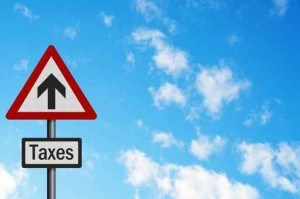 Brace yourself and your wallet because 2017 is shaping up to be an expensive year.
Brace yourself and your wallet because 2017 is shaping up to be an expensive year.
From paying more for everyday household items, to shelling out more in municipal taxes, next year is going to hurt.
On Jan. 1 the first phase of the province’s carbon tax will come into effect raising the price of gasoline by 4.5 cents per litre, diesel fuel by 5.35 cents and hike the cost of natural gas by more than $1 per gigajoule.
The Alberta government predicts this will mean the average Albertan will shell out an additional $191 in direct costs and up to $70 per household in indirect costs in the form of higher prices for goods and services.
To mitigate the impact, the province will provide rebates on a sliding scale, including $200 for single Albertans who earn $47,500 or less. The province will provide another $100 for couples and families who earn $95,000 or less, including $30 for each child under 18, for up to four children.
While this bodes well for middle- and lower- income Albertans, which it rightly should, only 60 per cent of households are expected to get a full rebate.
What this rebate doesn’t include is the impact the province’s minimum wage increase will also have on the cost of everyday goods and services.
On Oct. 1 Alberta increased minimum wage to $12.20 per hour, the first of three staged increases to reach $15 per hour by 2018.
Unions and labour activists claim increasing the minimum will help alleviate poverty, but many businesses claim a higher minimum wage will make Alberta a more expensive place to live as businesses pass on the cost to consumers.
To compound matters, the municipality is also currently mulling over a proposal to increase municipal taxes by 3.01 per cent in 2017.
For a house assessed at $750,000 the municipal tax increase would equate to $135 for a total tax bill of $4,635 next year.
For a commercial business assessed at $1 million the tax increase would hike up its annual bill by $467 next year for a total tax bill of $15,967.
While the tax increase is significantly less than last year’s and could be reduced by a further 0.5 per cent thanks to a tax over-levy in 2016, property taxes will rise next year one way or another.
Adding insult to injury, local utility rates are also expected to rise in 2017 forcing people to pay more for water, sewer, garbage and recycling.
Taking all of this into account, 2017 doesn’t look promising for the average Albertan, unless of course you decide to stop driving your car, using electricity or eating all together.
